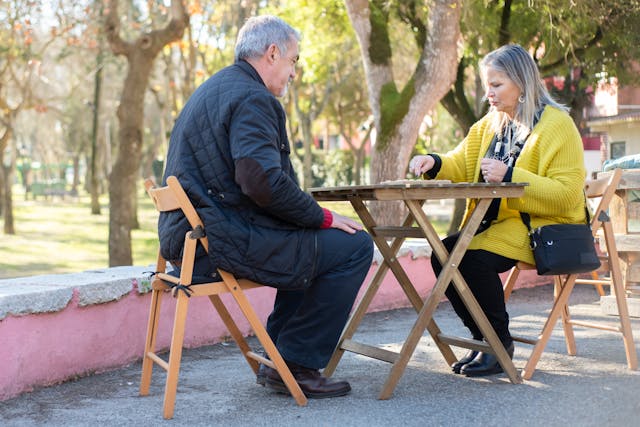Older adults who offer practical help to close friends—such as running errands, cooking meals, or assisting with household chores—tend to experience better moods in daily life. New research from the University of Michigan, supported by the National Institute on Aging, suggests that such acts of kindness are linked to greater emotional well-being in later life. However, the findings also reveal striking differences between men and women in how they experience the emotional effects of helping their friends.
The study found that, while both older men and women provide support to friends, their emotional responses to doing so differ. Older men are less likely than women to offer emotional support, and when they do, they often report a dip in upbeat mood on those days. In contrast, women’s moods remain stable or even improve when they offer emotional comfort to friends. Researchers believe this difference may be tied to gender norms and expectations about emotional expression.
Crystal Ng of the University of Michigan’s Survey Research Center explained that men may feel less comfortable engaging in emotionally expressive conversations, which could conflict with traditional masculine roles. “Offering emotional support to friends may be linked to a lower positive mood for older men,” Ng noted, “possibly because expressing empathy or discussing emotions may cause discomfort or emotional strain.” Women, on the other hand, often base their friendships on emotional closeness and communication, making such interactions more natural and rewarding for them.
The research highlights the unique and irreplaceable role friendships play in older adulthood. Unlike family relationships, which often come with obligations, friendships are chosen and usually centred on shared enjoyment and companionship. “Friends are especially important for emotional well-being in older age,” Ng said, “particularly for those who are unmarried, widowed, divorced, single, or childless.” Maintaining active, supportive friendships can provide a powerful buffer against loneliness and emotional decline.
The study, published in Research on Aging, is one of the first to explore how providing help to close friends affects daily mood in real-world settings. Researchers followed 180 older adults in the Greater Austin area of Texas, with an average age of 74. Participants reported on their mood and the kinds of support they exchanged with friends every three hours over several days. Emotional support was the most common form of help, followed by giving advice and offering practical assistance. Contrary to stereotypes, the findings show that many older adults continue to provide help to others, challenging the idea that they are mainly recipients of care.
Ng believes these results offer promising insights into how social engagement can enhance quality of life in older adulthood. Acts of practical help—such as providing transport, helping with chores, or running errands—don’t just strengthen friendships but can also give older adults a renewed sense of purpose and usefulness. For men in particular, encouraging these active, hands-on ways of helping may be especially beneficial. As Ng suggests, community programmes might focus on expanding opportunities for practical social involvement or finding meaningful ways for older men to engage in emotional support without strain, ensuring that friendship remains a vital source of joy and connection in later life.
More information: Yee To Ng et al, Daily Support to Close Friends and Mood Among Older Men and Women, Research on Aging. DOI: 10.1177/01640275251383546
Journal information: Research on Aging Provided by University of Michigan








